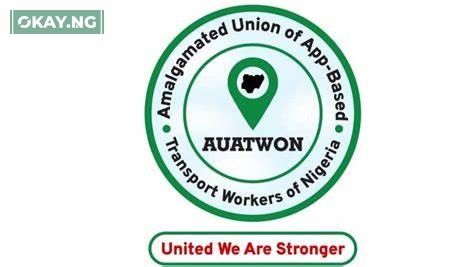App-based transportation in Lagos faces potential disruption as the Amalgamated Union of App-Based Transporters of Nigeria (AUATON) has declared a 24-hour protest, commencing on International Workers’ Day, May 1, 2025. The union, representing drivers operating under platforms like Bolt, Uber, and Indrive, is taking a firm stance against what they decry as “anti-labour practices” and deteriorating working conditions.
In a statement released on Tuesday, Steven Iwindoye, the Public Relations Officer of AUATON, articulated the drivers’ grievances, highlighting a confluence of issues that have pushed them to the brink of ceasing operations. “Our members would be staying off the apps, refusing to work, and demanding that their rights be respected,” the statement asserted, signaling a significant escalation in the ongoing tensions between the drivers and the app companies.
The crux of the matter lies in a range of long-standing disputes, including allegations of inadequate compensation that fails to reflect the drivers’ efforts and the rising cost of living in Lagos. Furthermore, drivers are voicing concerns over “unjust deactivations” from the platforms, which can abruptly cut off their livelihoods without due process. The pervasive issue of insecurity and unsafe working environments also weighs heavily on the drivers, who often navigate challenging and unpredictable circumstances.
Beyond these fundamental concerns, AUATON is challenging specific operational policies they deem exploitative. These include the substantial commission charges levied by the app companies, which significantly erode drivers’ earnings. The union is also advocating for more robust rider identification protocols to enhance driver safety and accountability. The mandatory facial recognition systems implemented by some platforms have also come under scrutiny, with drivers citing concerns about data privacy and potential misuse.
“We are protesting against poor wages, unjust deactivations, insecurity, and unsafe working conditions,” Iwindoye stated unequivocally. “Others are excessive commissions taken by app companies, lack of proper rider profiles, mandatory facial recognition systems, and harmful and exploitative work policies.”
Read Also: Lagos Drivers Boycott inDrive Over Safety, “Exploitative” Fares
This impending protest underscores the growing friction within the gig economy in Lagos, where a significant number of individuals rely on e-hailing services for their income. The drivers’ demands resonate with broader conversations around labor rights and fair treatment for gig workers globally.
Their concerns are not merely about financial gain; they speak to a fundamental desire for dignity, security, and fair treatment in their line of work. The lack of proper channels for dispute resolution and the perceived imbalance of power between the app giants and individual drivers have undoubtedly contributed to this boiling point.
The planned May Day shutdown serves as a stark reminder of the human element that underpins the convenience of app-based transportation. Should the protest proceed as planned, commuters in Lagos may face significant disruptions, highlighting the crucial role these drivers play in the city’s mobility ecosystem.
The ball now lies with the app companies to address these grievances and engage in meaningful dialogue with AUATON to avert the impending strike. Failure to do so could not only impact the livelihoods of thousands of drivers but also disrupt transportation services for millions of Lagos residents. The outcome of this standoff will likely have broader implications for the gig economy and labor relations in Nigeria.












